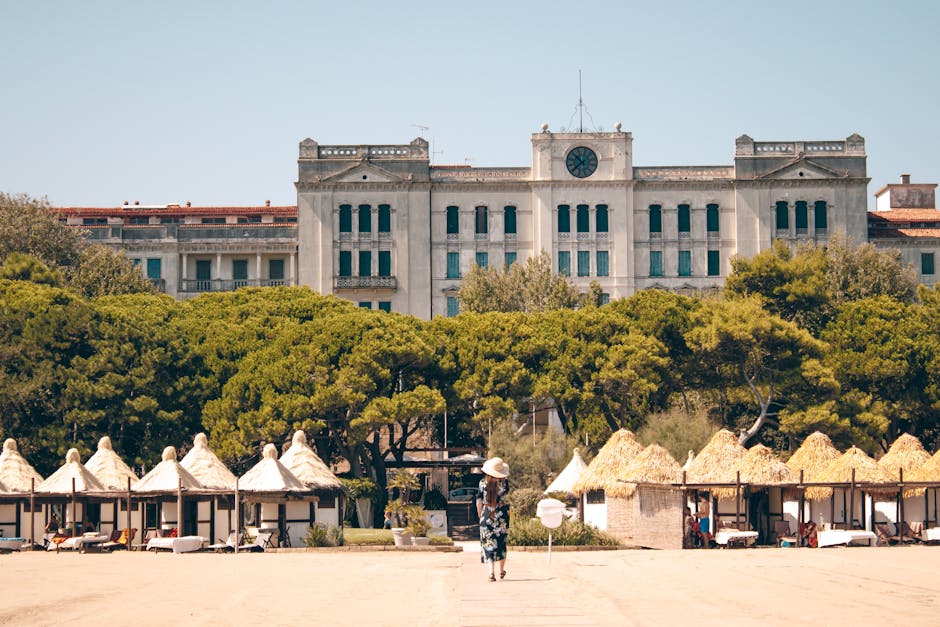
In the scenic landscape of Italy, the DIST Interuniversity Department of Regional and Urban Studies and Planning is making significant strides in the realm of urban sustainability. As cities worldwide face increasing pressure from climate change and urbanization, innovative solutions are essential. The DIST Department is at the forefront of these efforts, pioneering research and initiatives that are reshaping Italian cities. This blog post explores how the DIST Department is influencing urban sustainability in Italian cities by 2025, focusing on the latest projects, strategies, and their potential impact on urban development.
Understanding Urban Sustainability in Italy
Urban sustainability involves creating cities that are not only environmentally friendly but also economically viable and socially inclusive. In Italy, where historical charm meets modern challenges, achieving urban sustainability requires a delicate balance. The DIST Department recognizes this and is leveraging interdisciplinary research to devise comprehensive solutions that address various urban issues from public transportation to green spaces.
The Role of DIST Interuniversity Department
The DIST Department, based in Turin, collaborates with multiple universities and research centers across Italy. By integrating expertise from architecture, engineering, and social sciences, the department develops innovative strategies aimed at creating resilient urban environments. Their work emphasizes sustainable urban planning, renewable energy use, efficient public transportation, and the preservation of Italy’s rich cultural heritage.
Key Projects and Initiatives
As of 2025, the DIST Department is spearheading several groundbreaking projects that highlight their commitment to urban sustainability:
- Green Mobility Initiatives: The department advocates for enhancing public transport systems and promoting electric vehicle usage to reduce carbon emissions. Projects in cities like Milan and Rome focus on expanding metro lines and establishing electric charging stations.
- Smart City Solutions: In partnership with tech companies, DIST is implementing smart city technologies that optimize energy consumption and improve urban services. These solutions include smart lighting, waste management systems, and urban data analytics.
- Urban Agriculture: To combat urban heat and food deserts, DIST is promoting the integration of urban farms and gardens. Initiatives in cities such as Florence and Naples are transforming rooftops and unused spaces into productive green areas.
- Cultural Heritage Conservation: Italian cities are rich in historical sites. The department is developing methods to preserve these locations while accommodating modern infrastructure needs. Projects ensure that urban development complements rather than compromises cultural heritage.
Impact on Italian Cities
The impact of the DIST Department’s work is already visible in several Italian cities. Improved public transport and reduced traffic congestion in urban areas are noticeable outcomes. Furthermore, the implementation of eco-friendly building practices has led to a reduction in energy consumption. The department’s focus on green spaces is also enhancing urban biodiversity and providing residents with improved quality of life.
Additionally, these initiatives are fostering greater public awareness and community participation in sustainability efforts. By involving local communities in decision-making processes, the DIST Department ensures that urban planning meets the needs of residents and effectively addresses environmental challenges.
The Future of Urban Sustainability in Italy
Looking forward, the DIST Department aims to scale its successful projects nationwide, with the ambition of transforming Italy into a model for sustainable urban living. The department’s ongoing research and innovation efforts will continue to adapt to new challenges and opportunities presented by technological advancements and shifting environmental conditions.
By 2025, the blueprint laid out by the DIST Department could serve as an inspiration for other regions, encouraging a global shift towards more sustainable urban planning practices.
FAQ
What is urban sustainability?
Urban sustainability refers to the development of cities that are environmentally responsible, economically viable, and socially inclusive. It involves creating urban environments that meet present needs without compromising future generations’ ability to meet their own needs.
How does the DIST Department contribute to urban sustainability?
The DIST Department contributes by conducting interdisciplinary research and implementing projects that focus on sustainable urban planning, renewable energy, efficient transportation, and cultural heritage preservation. These efforts are aimed at making Italian cities more resilient and sustainable.
What are some examples of projects by the DIST Department?
Examples include green mobility initiatives to enhance public transport and promote electric vehicles, smart city solutions for optimizing energy use, urban agriculture projects to integrate green spaces into cities, and conservation efforts for cultural heritage sites.
Why is urban sustainability important for Italian cities?
Urban sustainability is crucial for Italian cities to address environmental challenges, improve residents’ quality of life, and preserve cultural heritage. Sustainable practices help reduce pollution, enhance public transport, and create healthier urban environments.
What is the future vision of the DIST Department for Italian cities?
The future vision involves scaling successful sustainability projects nationwide, transforming Italy into a leader in sustainable urban living. The department aims to continue adapting to technological advancements and environmental changes to ensure long-term urban resilience.
Conclusion
The DIST Interuniversity Department of Regional and Urban Studies and Planning is playing a pivotal role in shaping the future of Italian cities through urban sustainability initiatives. As 2025 unfolds, their efforts continue to influence urban development positively, setting a precedent for cities around the world. Through dedication to innovation and collaboration, the DIST Department is paving the way for a more sustainable and resilient urban future in Italy.


